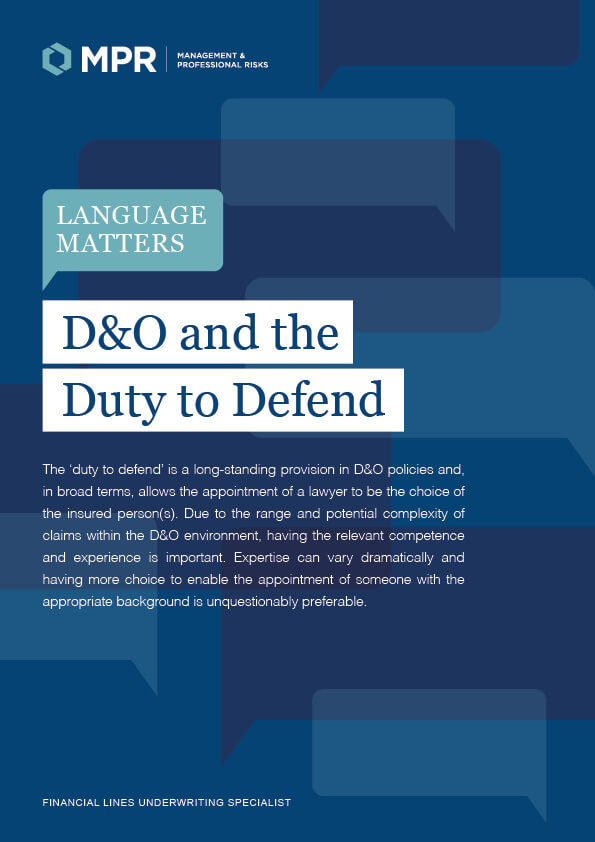The ‘duty to defend’ is a long-standing provision in D&O policies and, in broad terms, allows the appointment of a lawyer to be the choice of the insured person(s). Due to the range and potential complexity of claims within the D&O environment, having the relevant competence and experience is important. Expertise can vary dramatically and having more choice to enable the appointment of someone with the appropriate background is unquestionably preferable.
Notwithstanding this, because the insurer is potentially paying, they do need to know what is happening, so they will always seek to reserve the right to associate on any investigation, defence, negotiation and settlement, and would need to be consulted prior to any spend against the policy (this essentially allows the validation of lawyer choice together with the rates and, ultimately, litigation strategy). Duty to defend language would typically read:
“It shall be the duty of each Insured and not the duty of the Insurer to defend Claims.”
Some policy wordings prescribe who an insured person(s) has to use, or may impose limited caps on hourly rates, and this needs to be considered for potential disadvantages, but the duty to defend position is taken for a number of good reasons, some of which include:
1) in criminal matters, where a director may be facing potential imprisonment, it might be considered inappropriate to compel an insured to use an insurers choice of lawyer, if they were not comfortable in doing so;
2) elements of claims may not fall for cover (see Allocation in D&O Policies – MPR Underwriting) and, again, insurers ought not to be able to compel the use of certain lawyers where the policy may not respond to some of the defence costs or loss that might be incurred;
3) often, D&O insurers are not in a position to confirm cover at the time of instruction, so they cannot reasonably insist on compelling the use of a lawyer the insured person(s) might not otherwise choose; and
4) panel lawyers may be unsuited for claims in certain territories, typically overseas.
This contrasts with the Employment Practices Liability environment, where the respondent to the claim is almost always the organisation itself and a more prescriptive approach is possible and, arguably, more appropriate. In the D&O environment, however, direction to a sole solution or a more limited panel can fail to provide sufficient depth in quality and breadth of choice and is a move away from a more traditional D&O language approach.
In the D&O environment, however, direction to a sole solution or a more limited panel can fail to provide sufficient depth in quality and breadth of choice and is a move away from a more traditional D&O language approach.


